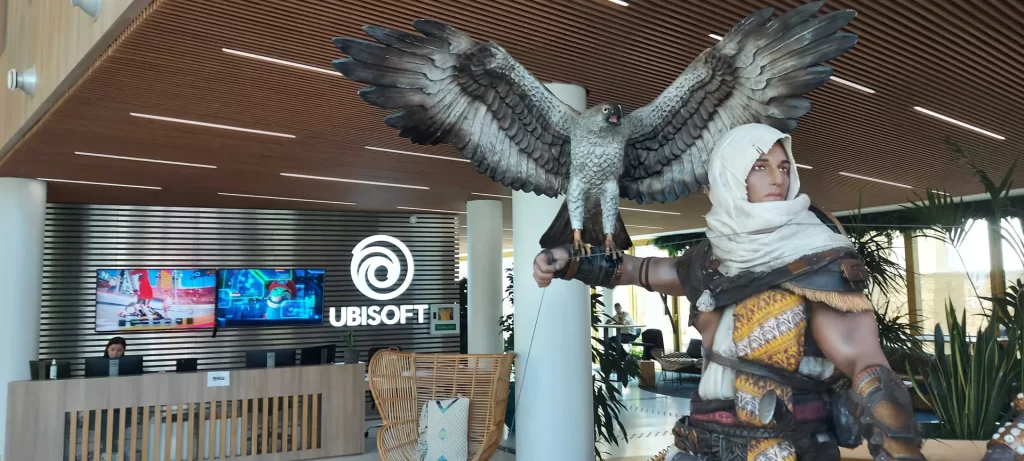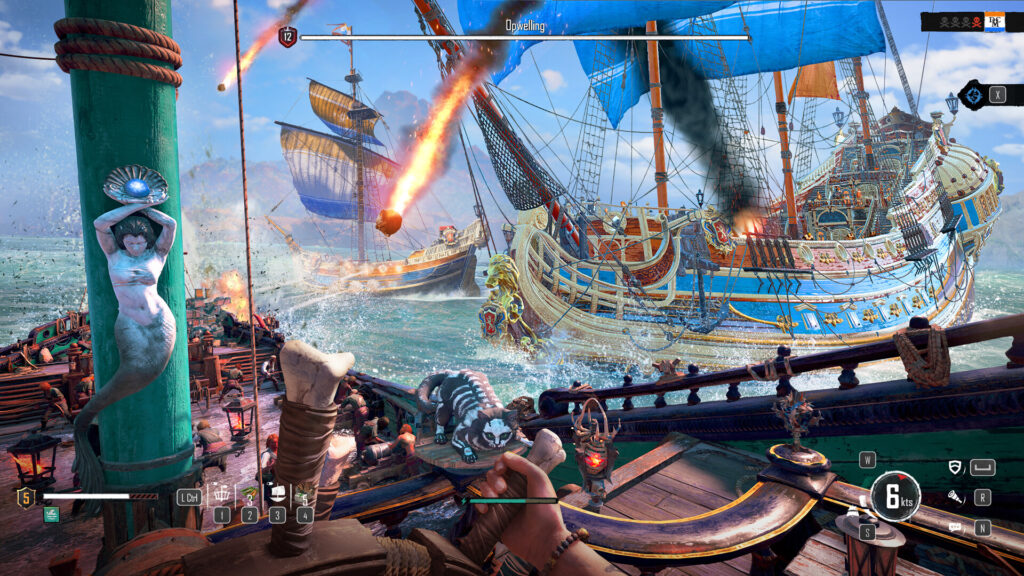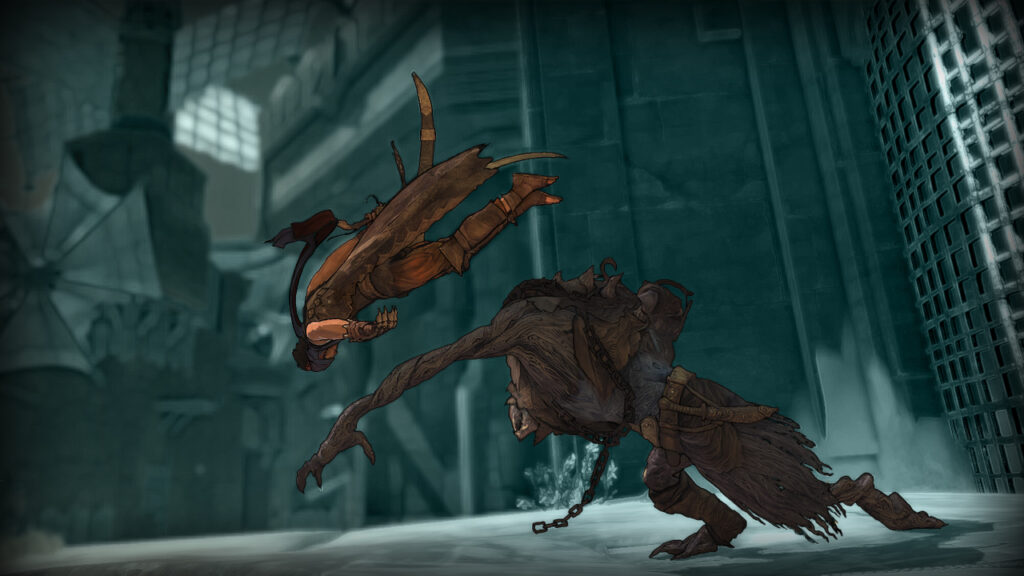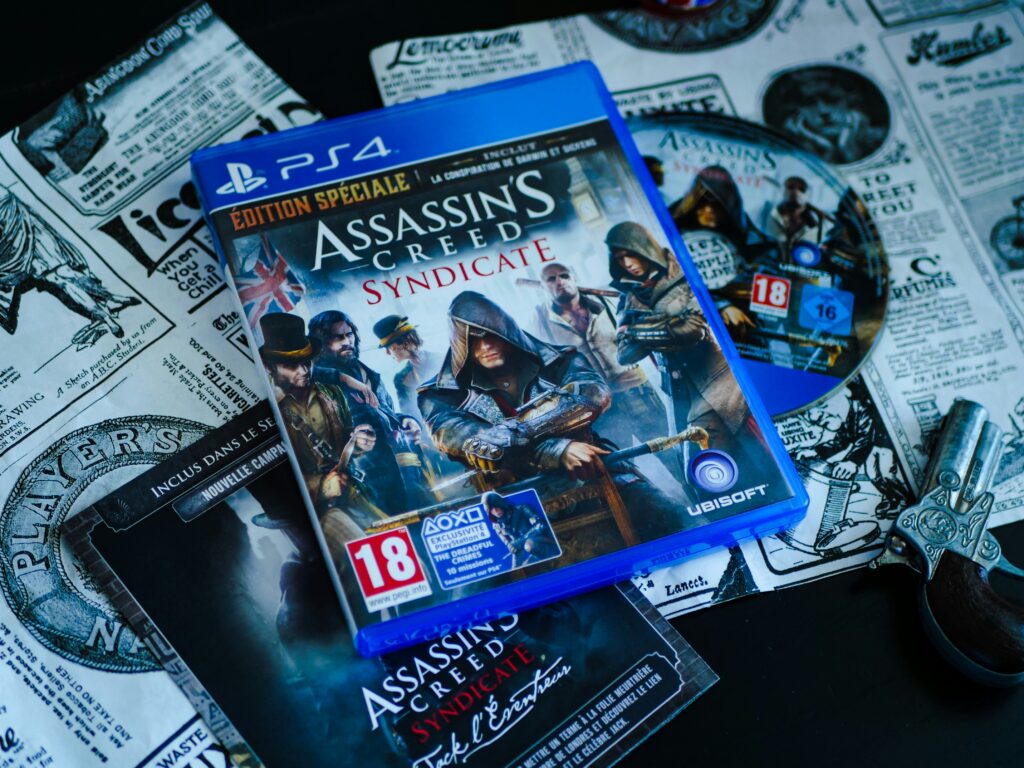Ubisoft: the name conjures memories of iconic game franchises like Assassin’s Creed, Far Cry, and Rainbow Six. Lately, though, the French gaming giant has been making headlines for reasons other than exciting new releases.
In recent years, the company has faced a steep decline, with its share price plummeting from a 2018 high to a current value of 12.49 EUR. This is a dramatic fall considering it was showing good signs of recovery during the pandemic… until disaster struck.
Well, what happened to Ubisoft? This article outlines the challenges Ubisoft faces, exploring the controversies, missteps, and market forces that have contributed to its recent struggles. Then, we’ll revisit some of Ubisoft’s most successful games to remind you of their long-lasting legacy despite the issues playing the company.
Get ready for a look behind the curtain of one of gaming’s most traditional studios!
What happened to Ubisoft? Summarizing the key controversies
Let’s take a look at the core issues behind Ubisoft’s rough situation in the last few years:
Negative press related to alleged sexual harassment

In June 2020, a French newspaper published a report detailing allegations of sexual harassment and a toxic work environment at the company. It included accounts from over 20 Ubisoft employees, painting a picture of widespread misconduct. This report detailed instances of harassment and highlighted a disturbing pattern of inaction within the company.
Prominent figures within Ubisoft, like Maxime Beland (co-founder), Tommy Francois (vice president), and Serge Hascoet (chief creative officer), were accused of serious misconduct. All three were swiftly dismissed from the company, but this sparked further outrage from the community.
Why didn’t Ubisoft take action sooner, they asked. And, as the company claimed a lack of awareness, things started to get hotter.
The resulting backlash from the gaming community was swift and substantial. The hashtag #BoycottUbisoft trended on Twitter and drew attention from many prominent figures in the gaming industry.
Professional gamers and developers voiced their support for the victims and condemned Ubisoft’s handling of the situation, further damaging the company’s reputation and public image.
Furthermore, the scandal extended beyond French borders. Reports detailing similar issues within other studios, like the company’s Singapore branch, suggested the problem was systemic.
The combined effect of these controversies led to a significant drop in Ubisoft’s stock price and a noticeable decline in their recent games’ sales, a double blow to the company’s chin.
Ghost Recon Breakpoint and NFTs
In 2021, Ubisoft announced its foray into NFTs (non-fungible tokens) with its Ghost Recon Breakpoint game. This move was met with significant and widespread backlash from the gaming community, with many expressing concerns about the environmental impact of NFTs and criticizing Ubisoft’s decision to incorporate this controversial technology into its game.
The project was received so negatively it garnered an impressive 96% dislike-to-like ratio, rivaling historically disliked videos, like YouTube’s 2018 Rewind (around 86.6%) and Sadak 2’s trailer (close to 95%).
The negative reaction to this decision shows how risky decisions can impact a company’s image and profitability and further fuels the negative sentiment surrounding Ubisoft. It also demonstrates the importance of understanding consumer sentiment and making carefully considered decisions that align with the gaming community’s values and expectations.
Creative stagnation

Beyond the controversies, Ubisoft faces criticism for a perceived lack of innovation in recent years. Many of its games seem to rely on familiar formulas and established gameplay mechanics, leading to accusations of creative stagnation. This repetitive approach might explain why players feel many of the company’s recent releases have felt uninspired and lackluster.
Games like Star Wars Outlaws, while boasting a conceptually exciting open-world setting, highlight this issue. The game design, however, has been criticized for employing frustrating “fear of missing out” (FOMO) tactics and implementing mechanics that risk trapping players in a state of permanent frustration. This ultimately results in a poor gaming experience that fails to live up to its promise.
Also, the AAAA (quadruple-A) incident.
This creative rut and questionable design choices have contributed to a decline in player satisfaction and critical reception, further impacting sales and the overall public perception of Ubisoft. While there have been exceptions, the prevailing feeling among players is that Ubisoft’s once innovative games have become predictable and uninspired.
More recently, Assassin’s Creed: Shadows
Set in Feudal Japan, Assassin’s Creed: Shadows faces controversy surrounding its historical accuracy, particularly in how Ubisoft portrays its characters and setting. While the game is still in development, based on the teasers, some players found the lack of historical accuracy frustrating, a common critique of historical games seeking to provide a more engaging and entertaining narrative than simply sticking to historical facts.
The game’s choice of a black protagonist also sparked heated debates among gamers and history enthusiasts. While many appreciated the inclusion of a diverse character, others found it to be unnecessary. Political, even, though records of a black samurai named Yasuke exist.
Online forums and social media platforms saw significant discussions, too. Many Japanese gamers criticized Ubisoft’s portrayal of Japanese culture and history, leading to an online petition calling for the game’s release to be stopped. The petition quickly amassed over 100,000 signatures, demonstrating the depth of concern and dissatisfaction among players.
This controversy further highlighted the importance for game developers to be sensitive to historical contexts and cultural nuances, especially when creating games based on real-world settings.
Remember Ubisoft’s rise to prominence
Before the recent controversies and creative struggles, Ubisoft enjoyed a period of remarkable success, establishing itself as one of the world’s leading game developers. These are some of their most iconic works:

Their first success, Prince of Persia (1989), is an action-adventure game with challenging gameplay, atmospheric world design, and a great story. It solidified Ubisoft’s reputation for developing engaging and immersive experiences, and it became another beloved franchise. Its unique approach to gameplay and storytelling helped set the stage for many future games.
Rayman, originally released in 1995, introduced the world to the limbless hero. This platformer established Ubisoft’s unique approach to game design, emphasizing creativity and fun over raw technological power. Rayman helped set the stage for Ubisoft’s future success. It showcased the company’s ability to create memorable characters and innovative gameplay mechanics and turned it into a beloved franchise.

In 2007, Assassin’s Creed introduced the world to Altaïr Ibn-La’Ahad and a combination of action, adventure, and historical fiction. This series went on to become one of Ubisoft’s most successful franchises.
Its parkour-style movement, stealth combat, and historical settings immediately grabbed players by their controls. Do you remember where you were when you first encountered this game? Assassin’s Creed demonstrated Ubisoft’s ability to create long-running, successful franchises that could adapt to new technologies and changing market trends… until very recently.
Finally, Rainbow Six Siege (2015) turned the tactical shooter genre on its head, introducing a unique and highly competitive online experience. Its focus on teamwork, strategic gameplay, and a regularly updated roster of operators helped cement Rainbow Six Siege as a modern classic.
So – what happened to Ubisoft? It’s complicated, as all in the gaming business.
Ubisoft’s journey from a gaming giant to a company struggling to regain its footing is a cautionary tale. The combination of controversies, creative stagnation, and questionable business decisions has taken its toll.
But it’s not too late: Ubisoft has the talent, the resources, and the legacy to make a comeback. Focusing on new and innovative game ideas, a much better work environment, and re-earning player trust are key steps to regaining their position in the industry.
A renewed emphasis on quality and creativity, combined with a strong commitment to community engagement, would be great to rebuild player confidence and revitalize the company’s image.
Looking to shape the future of gaming with your unique ideas? Main Leaf Games offers a wide range of game development services and can help you create the next generation of gaming experiences. Contact us today for a free quote and let’s build something incredible together!

